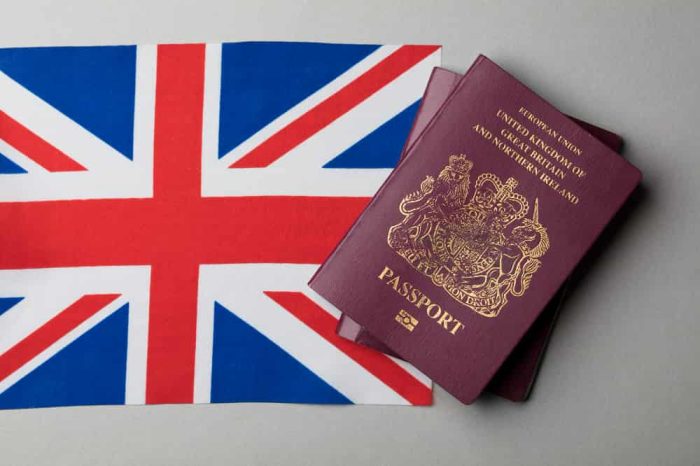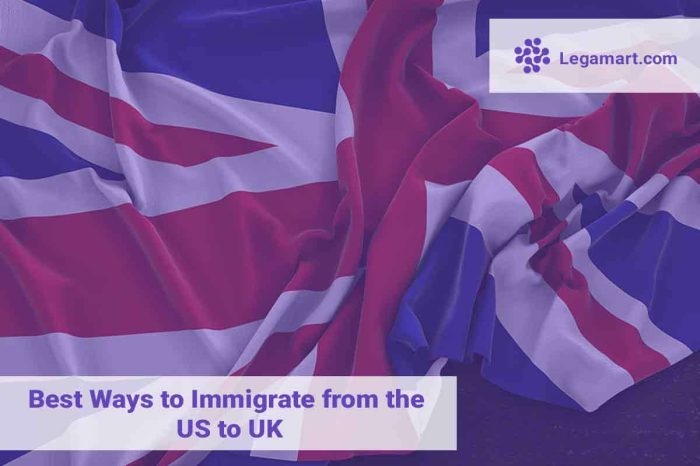Family-Based Immigrant Visas
Family-based immigration visas are given to family members of existing residents or citizens of a country. In many cases, international legal issues arise due to the different criteria to obtain family-based visas based on the relationship with the existing residents or citizens. Documentation for specific legal requirements, such as proving the familial relationship or financial stability, can also be complicated. Furthermore, some countries have quotas for the number of family-based visas they issue, leading to possible delays or rejection of applications.
Find best lawyers for Family-Based Immigrant Visas
Issues related to Family-Based Immigrant Visas
There are a few family-based visa categories, but the most common is the Immediate Relative Visa. This visa is for spouses, children (under 21 years of age), and parents of U.S. citizens. There is no cap on the number of visas granted each year in this category.
The other main family-based visa category is the Family Preference Visa. This visa is for unmarried children over 21 years of age, married children, and siblings of U.S. citizens. Limited visas are available in this category each year and are allocated according to a quota system that gives preference to certain countries.

Latest Articles
Tell us more about your problem.
Please give a brief description about what it is you need to talk to our lawyers about ?
Frequently Asked Questions
How can online legal platforms assist immigrants in obtaining family-based immigrant visas?
Online legal platforms can assist immigrants in obtaining family-based immigrant visas by providing a range of services and resources, including:
Informational resources: Platforms can provide information on the various types of family-based immigrant visas available, including their eligibility criteria, required documentation, and application process.
Eligibility assessment tools: Online legal platforms can provide eligibility assessment tools that help potential immigrants understand which family-based immigrant visa programs they may be eligible for based on their relationship to a U.S. citizen or lawful permanent resident.
Document preparation assistance: Platforms can offer document checklists and templates to simplify the process of gathering and submitting required documentation.
Application form assistance: Platforms can offer guidance and support with completing the application form and ensure that it is filled out correctly.
Immigration advice: Platforms can provide immigration advice to help applicants navigate the complexities of the family-based immigrant visa application process and ensure compliance with local laws and regulations.
By offering these services and resources, online legal platforms can help ease the stress and uncertainty associated with applying for a family-based immigrant visa, increase the chances of success, and ensure that applicants understand and comply with all legal requirements and regulations.
What are the legal requirements and criteria for obtaining family-based immigrant visas, and how can online legal platforms provide guidance on meeting these requirements?
In general, the legal requirements and criteria for obtaining family-based immigrant visas in other countries involve demonstrating a qualifying relationship with a sponsor who is a citizen or permanent resident of that country, meeting certain eligibility requirements, providing evidence of good health and character, and submitting all required documentation. Online legal platforms can provide guidance on meeting these requirements by offering informational resources, eligibility assessment tools, document preparation assistance, application form support, and immigration advice to help applicants navigate the complexities of the process and ensure compliance with local laws and regulations. It’s important to note that specific requirements and criteria vary depending on the country and program being applied for.
What are some common family-based immigrant visa issues, and how can online legal platforms help resolve them?
Some common family-based immigrant visa issues that applicants may encounter include:
Difficulty gathering required documents: The process of collecting and submitting all necessary documents for a family-based immigrant visa application can be challenging and time-consuming.
Delays in processing: Family-based immigrant visa applications may take longer to process than anticipated, leading to extended separation from family members.
Eligibility challenges: Applicants may struggle to demonstrate eligibility for the specific family-based immigrant visa program they are applying for.
Language barriers: Applicants may face language barriers when communicating with government authorities, which can make the family-based immigrant visa application process more difficult.
Online legal platforms can help resolve these issues by providing a range of resources and services such as:
Document preparation assistance: Platforms can offer document checklists and templates that simplify the process of gathering and submitting required documentation.
Translation services: Platforms can offer translation services to assist applicants in communicating with government authorities.
Eligibility assessment tools: Online legal platforms can provide eligibility assessment tools that help potential applicants understand which family-based immigrant visa programs they may be eligible for based on their relationship to the sponsor.
Application form assistance: Platforms can offer guidance and support with completing the application form and ensure that it is filled out correctly.
Immigration advice: Platforms can provide immigration advice to help applicants navigate the complexities of the family-based immigrant visa application process and ensure compliance with local laws and regulations.
By offering these resources and services, online legal platforms can help ease the stress and uncertainty associated with applying for a family-based immigrant visa, increase the chances of success, and ensure that applicants understand and comply with all legal requirements and regulations.
What types of family-based immigrant visas are available in the UK or China?
In the UK, family-based immigration is limited, and applicants must meet specific eligibility criteria to qualify. The UK offers two types of family-based immigrant visas:
Spouse or Partner Visa: This visa is for individuals who are in a genuine relationship with a British citizen or settled person and wish to join or remain with their spouse or partner in the UK.
Parent Visa: This visa is for parents of a British citizen or a settled person who wish to join or remain with their child in the UK.
In China, there are several types of family-based immigrant visas available, including:
Family Reunion Visa: This visa is for foreign national spouses, children, or parents of Chinese citizens or permanent residents who want to join them in China.
Private Visit Visa: This visa is for foreign nationals who want to visit their relatives who live in China.
Work-Related Residence Permit: This permit is for foreign nationals who have a work contract in China and want to bring their family members with them.
Permanent Residence Permit: This permit is for foreign nationals who have lived in China for at least five years and meet other specific requirements, such as financial stability, good health, and no criminal record.
The specific type of family-based immigrant visa available in the UK or China may depend on various factors, including the nature of the relationship, the purpose of the visit, and the length of stay. Online legal platforms can provide guidance on specific family-based immigrant visa programs, as well as provide resources, advice, and support throughout the application and renewal process.
What are the requirements for sponsoring a family member for an immigrant visa in the UK or China?
The requirements for sponsoring a family member for an immigrant visa in the UK or China vary depending on the type of visa being sponsored, but some general requirements are as follows:
In the UK:
Eligibility: The sponsor must be a British citizen or settled person (i.e., has indefinite leave to remain) and meet other eligibility criteria.
Relationship: The sponsor must have a qualifying relationship with the family member they wish to sponsor, such as a spouse, parent, child, or sibling.
Financial support: The sponsor must demonstrate that they can financially support the family member they are sponsoring without relying on public funds.
Accommodation: The sponsor must provide evidence that they have adequate accommodation for themselves and their family member.
English language requirement: If the family member is not from an English-speaking country, they may need to pass an English language test.
In China:
Eligibility: The sponsor must be a Chinese citizen or permanent resident and meet other eligibility criteria.
Relationship: The sponsor must have a qualifying relationship with the family member they wish to sponsor, such as a spouse, parent, child, or sibling.
Financial support: The sponsor must demonstrate that they can provide financial support for the family member they are sponsoring.
Accommodation: The sponsor must provide evidence that they have adequate accommodation for themselves and their family member.
Invitation letter: The sponsor must provide the family member with an invitation letter that includes details about the purpose of the visit and the duration of stay.
The specific requirements for sponsoring a family member for an immigrant visa in the UK or China may depend on various factors, including the type of visa being sponsored and the nature of the relationship between the sponsor and the family member. Online legal platforms can provide guidance and assistance throughout the sponsorship process, helping to ensure compliance with legal requirements and regulations, and minimizing delays.
What is the process and timeline for obtaining a family-based immigrant visa in the UK or China?
The process and timeline for obtaining a family-based immigrant visa in the UK or China vary depending on the specific visa program, but some general steps and timelines are as follows:
In the UK:
Eligibility assessment: The sponsor must meet the eligibility criteria for sponsoring a family member for an immigrant visa.
Application preparation: The family member must gather all required documents and submit the application, either online or by post.
Biometrics: The family member must provide their biometric data, such as fingerprints and a photograph.
Decision: The UK Home Office will assess the application and make a decision on whether to grant the visa.
Issuance of visa: If the visa is granted, the family member will receive their visa and can travel to the UK.
The processing time for a family-based immigrant visa in the UK may vary depending on the visa category and other factors, but it typically takes around 12 weeks or longer.
In China:
Eligibility assessment: The sponsor must meet the eligibility criteria for sponsoring a family member for an immigrant visa.
Invitation letter: The sponsor must provide the family member with an invitation letter that includes details about the purpose of the visit and the duration of stay.
Application preparation: The family member must gather all required documents and submit the application to the Chinese embassy or consulate.
Review and decision: The embassy or consulate will review the application and make a decision on whether to grant the visa.
Issuance of visa: If the visa is granted, the family member will receive their visa and can travel to China.
The processing time for a family-based immigrant visa in China may vary depending on the visa category and other factors, but it typically takes around 4-8 weeks.
It’s important to note that the timelines listed above are general estimates and can vary based on individual circumstances, such as the complexity of the case, visa category, and the availability of appointment dates. Online legal platforms can provide guidance on specific family-based immigrant visa programs, as well as provide resources, advice, and support throughout the application and renewal process to help minimize delays and ensure a successful outcome.










